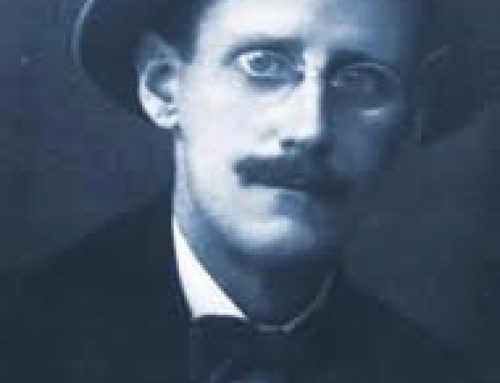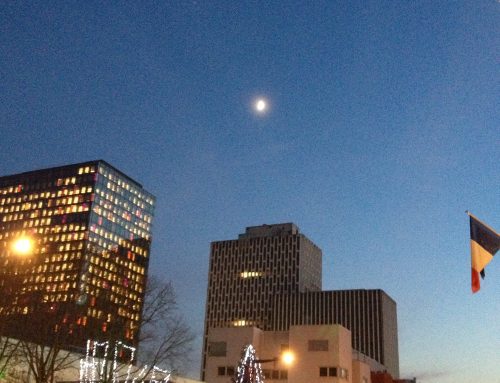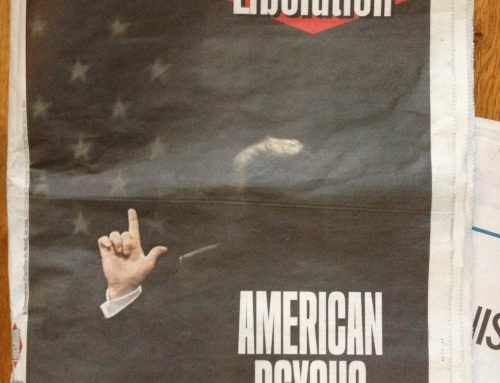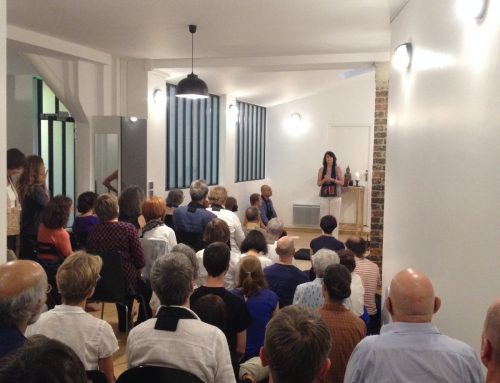I stumbled upon this comment today, and am throwing it out there to see what others might have to say. It touches on so many issues that many of us find ourselves confronting daily – wealth, power and fame, happiness, spirituality, goals, food, clothing, leisure, livelihood, politics…
Maybe we can get a discussion going here (you can comment in whatever language you like).
« Renunciation is the attitude toward mundane things such as wealth, power and fame that they are not, in themselves, sources of true and lasting happiness and are only useful in so far as they enable us to make progress toward our spiritual goal. What we need to progress toward our spiritual goal are adequate food, clothing, shelter, medical care and the leisure time necessary for spiritual practice — the requisites of a spiritual life.
« A Bodhisattva is motivated to help everyone attain the true and lasting happiness found by walking a correct spiritual path, and he or she has a responsibility to help everyone attain the requisites of a spiritual life.
« Should Bodhisattvas become involved in the political arena as a method of helping everyone attain the requisites of a spiritual life? »
– Tenzin Norbu













As the above comment (from – ) notes, Tenzin Norbu’s text goes on to say many things that I did not want to include in my original post.
For one, I chose not to have him answer his question so that we might give it some thought for ourselves, as we’ve been doing.
Rimbaud’s "Je est un autre" could perhaps be considered only part of the equation; we could add, "Et l’autre est moi." Or we could look at it in the endlessly reflecting mirror of the dharma name my teacher so wisely gave me: Tu es cela.
I would say that "become involved in the political arena" can mean one of two things:
a) to be strongly involved in politics, to make a profession out of it (which also means to make a living from it), e.g. to run for a parliamentary seat.
b) to start a grassroots organization, to raise funds, organize unions, strikes, etc. – this second type of activities can be more sporadic, but they also imply a position of power and leadership.
In the long run other things may follow: doubletalk (what the French call “parler la langue de bois”), to compromise, to believe sometimes the ends justify the means; the initial ideologically-oriented project becoming a mere pursuit of personal power.
By the way, the answer to the question “should Bodhisattvas become involved…” was, at least accordingly to the author, affirmative:
—“Should Bodhisattvas become involved in the political arena as a method of helping everyone attain the requisites of a spiritual life? My answer to this question is, "Yes."
[Tenzi Norbu, “Bodhisattvas and Political Engagement”, online]
What makes me feel uneasy about this verdict it is not so much what the Bodhisattva may or may not do, but that he/she should be exhorted to do so. Tenzin Norbu also says, referring to “the requisites of a spiritual life”, i.e. the most basic human needs:
—“The Universal Declaration of Human Rights explicitly affirms that everyone has a right to adequate food, clothing, shelter and medical care. A Bodhisattva must be committed to defending these rights, BECAUSE the truth that everyone should be loved equally is the basis of these rights.”
Well that’s a good justification but, once again, a bit “ideological”: why should the Declaration needed to be “approved” by the Bodhisattva, before he/she could act accordingly?
(In 2000, a group of Muslim nations also decided to wrote an alternative “Cairo Declaration on Human Rights”, which says everyone has a "right to a dignified life in accordance with the Islamic Sharia”).
Tenzin Norbu certainly means well, and perhaps I was wrong from the beginning, since I’ve been commenting on something that was not in Amy’s original post. Anyway, let me just add that the author also seems to draw a line of separation between “us” (the Bodhisattvas) and them:
“Let’s, those of us who understand these spiritual truths, not waste this precious opportunity. When we enter into the political discussion to teach them [i.e. the politicians], we are not dirtying our hands in a messy, mundane world that we should abandon, we are staying true to our mission of leading everyone to the true and lasting happiness found at the end of the spiritual path.”
Je est un autre. It has been said we need the “Other” to define ourselves, in psychology (at least according to some authors) that’s how the self comes into being. But I don’t think this makes much sense in Mahayana Buddhism, it should be exactly the opposite (or maybe that’s Theravada Buddhism, I really don’t know –and this post is already too long).
An arena is a place of physical confrontation: “an enclosed area, often outdoor, for the presentation of sporting events (sports arena) or other spectacular events; earthen area… for rodeos… bullfights”. Although it may be used metaphorically, the word has a sense (and a history) of violence attached to it.
arena (n.)
1620s, “place of combat”, from L. harena “place of combat”, originally sand, sandy place (…) The central stages of Roman amphitheaters were strewn with sand to soak up the blood. [Online Etymology Dictionary]
In Portuguese (and Spanish) it still means the place where the bullfight takes place, i.e. the bullring. The expression arena política is also used, but perhaps less than in English – I could not say. But I don’t think that the ordinary (and, most of the times, politically innocuous) act of vote in an election could be called an act of “becoming involved in the political arena”.
To vote is an act of citizenship, according to some; or an unethical act of giving up/withdrawing (according those who do not recognize the representative system). It certainly is a political act of some sort, but so are most of the things we do in our daily life.
[I wrote this comment two days ago but, for same reason, was unable to post it –I guess I made some technical mistake. Meanwhile, I decided to change my name to “unrepentant atheist” –it’s a bit tacky, I know, but it sounds slightly better in Portuguese].
To teach is a political act (an educator is never neutral). But in our daily life, all decisions we make –the place where we have breakfast for instance – are somehow political.
Zoon Politikon (“political animal”) is an expression used by Aristotle. We are intrinsically political because humans do not live alone but in a polis, an organization of some sort: a family, a couple, a State, a tribe of nomadic hunter-gatherers.
Thanks all for the comments.
As to what is a bodhisattva (in my experience), see the entry I’ve added.
Among the other questions we might ask are:
What is a spiritual life?
And what does "involved in the political arena" mean? Am I involved in the political arena if I vote in an election, for example?
I agree with the first paragraph. At least it doesn’t seem to me to be something polemical about it. Although “our spiritual goal” seems rather vague to me. Not mentioning the fact that “spiritual goal” may become just another form of illusion, of attachment, of gains-and-losses way of thinking (well… anyway, what do I know?)
The second and third paragraphs are more “doctrinarian” in substance. For instance, I not sure what a Bodhisattva is (I mean, I know what the dictionary says he/she is, but I’m not sure I did grab the whole idea). Is a Bodhisattva a kind of “missionary”? This is a loaded [negative] word – in most countries missionary/mission associate with colonialism, destruction of native cultures, so one. One immediately shrinks just to the thought of it.
So this question –“Should Bodhisattvas become involved in the political arena” — seemed to me a rather unfortunate way to put things, but perhaps it made sense when read in its original context. Because I’m rather ignorant of Zen thinking, I immediately tried to find out who Tenzin Norbu was, and did find the quoted text in the internet. I’ve found several other texts by him, actually, and to say the truth this one seemed to me the less “inspired” of them – but, once again, I know next to nothing about Zen Buddhism.
The issue of the relation between religion (or spirituality) and politics is such an old one… I guess it isn’t easy to discuss it in the West – or, at least in a so-called catholic country such as mine – too many horrible things have been done in the past, so much abuses, so many hard words that have been said, that now is difficult to forget. And to pardon.
Suspicion against spirituality and religion is strong. A few days ago I saw an interview on TV with the Portuguese priest-poet [padre-poeta] José Tolentino de Mendonça. Innumerous published books (poetry, theatre, theological essays), several literary awards, he even has his own Wikipedia entry (strangely enough in Portuguese and is Russian). The relation between Christianity and culture is one of his main concerns – not only is he the national responsible for the Pastoral of Culture, but he was also nominated adviser [consultor] of the Pontifical Cultural Council, in Vatican.
José Tolentino de Mendonça was also responsible for the arrangement of a meeting between Pope Benedict XVI and Portuguese artists and poets (some of them atheists, apparently), at the time of the Pope’s visit to Portugal in 2010. He seems such an open-minded, tolerant person. A truly spiritual being (and I’m not being ironic).
Then, the next I’ve read this:
“The Christian Institute [UK evangelic conservative group], reacting to a questionable poll that appears to show the number of British people identifying as lesbian, gay or bisexual in the UK may be much lower than previously thought, has bemoaned that the UK should consider changing its marriage laws to incorporate same-sex couples when they are such a minority. Reports The Daily Mail:
“The Christian Institute think-tank said the ONS numbers meant the [UK] Prime Minister was revolutionising the marriage laws for the sake of new rights for a very small group. Spokesman Mike Judge said: “It is staggering that such a monumental change is being carried out on behalf of a tiny proportion of society.”
“Hilariously poor though the argument is, it is also incredibly telling. The very idea that because a population is smaller than previously thought, the majority has permission to disregard minority rights (…)”
I was relief these people were Evangelic Christians and not Catholics (and –yes, this time I reckon I may sound a bit ironic). I wonder on the possibility they might have been Buddhists.
Sister Jeanne D. went to India as a catholic missionary. Overthere she learned vipassana meditation – which she practices every day for years. She once told how much she learned of this culture and its spirituality. And how in doing vipassana for years you start feeling processes in your body on a nearly – i thought she said moleculair level?-
She did fight for the servants to have a human life – with respect and dignity – and she still does.
She said about Mother Theresa that she was great. But that their ways were different. For Mother Theresa would have dinner with the rich who beat up the servants even – to ask them for money for her mission. While she would not have dinner with those rich who don’t respect human rights…
Bodhisattvas will do and be what is necessary to be at every moment, replying to whatever is asked for: waking up, taking a shower, having breakfast, taking garbage out, going to church in the morning, not understanding all that is said (another language) but continue to make effort to be present, listening to church choir, feeding friends cat, saying hello and good morning to people on the street, going to market to buy vegetables, cleaning the house, taking the small neigbours monkey to a walk, replying to emails, commenting on blogs, preparing lunch and so on…
spiritual life is just ordinary life. nothing special, nothing different. no need to be a certain and specific way.
i think this is an extremely important question – for as in spirituality is allways said things are beyond good and bad. But at the same time it is the heart of real spirituality i guess that there is good and bad as well and that they are both sides of the same coin.
I would not say "should" become involved in the political arena…
i think we can hide behind everything:
I guess here is not a subscribtion of what "one should do on the path"…
it could be different for everyone…
doing politics or not doing politics – things are subtile when it is about hiding.
when the work to do is to do politics… one has to do politics
when a lot of work is done i guess one has nothing left to do then serve interconnedtedness? one becomes interconnectedness? We ofcourse allready all are interconectedness…
Bernie Glassman: "when we do this only for ourselves – we didn’t understand a thing"
the requisites of a spiritual life are here before us? We can trust.
But ofcourse if there is hunger …
Then there are "options":
one can say you have to feed the hungry
one can say one has to help the hungry to learn to feed themselves
one can say everyone has "the freedom" to be hungry – or wealthy… as is said often. No regulations.
…
I think Mandela as well as Ghandi, Romero and Martin Luther King sure did a great job…
and the spiritual work is here and now.